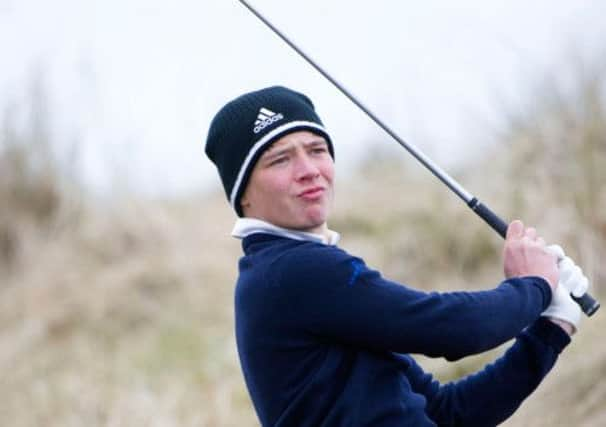Grey insists amateurs must raise their game after a barren year


But failure to see a single Scot picked for the Walker Cup for the first time since 1949 was an embarrassment to the game’s governing body, as is the fact it’s more than four years since a player from the home of golf landed one of the top 72-hole titles on the British and Irish amateur circuit.
While it’s the job of Steve Paulding, in his role as Scottish Golf performance manager, to try and ensure displays improve at men’s level, the ultimate responsibility lies with Hamish Grey and he believes the players themselves need to start showing better attitudes to benefit fully from a programme that costs £900,000 per year.
Advertisement
Hide AdAdvertisement
Hide Ad“The Walker Cup was a huge disappointment, but we had no quibbles about it,” says the SGU’s chief executive. “None of our players made a place their own and that’s what you have to do. But there’s been some really encouraging results from the under-18s. Four [Ferguson, Neil, Connor Syme and Robert MacIntyre] were picked in the Great Britain & Ireland team for the Jacques Leglise Trophy and that didn’t include Ewan Scott, who was over in the US.
“All we can ever do is provide systems of support to help players go and do it. I’m absolutely confident that we are providing all the support we can for them and it’s down to them to see how far they can go.
“There’s always a difference from junior golf to men’s golf as well as amateur to pro, so only time will tell. It’s not just the playing; it also comes down to attitude. The hallmark of any great sportsperson is that they are always looking to improve and learn.”
The SGU has a respectable track record when it comes to fuelling the food chain, having seen the likes of Stephen Gallacher, Alastair Forsyth, Richie Ramsay, Marc Warren and Scott Jamieson all come through the amateur ranks before going on to become European Tour winners.
However, it has become increasingly difficult for players to make the transition from amateur to professional, as the trio that put Scotland on top of the world when winning the Eisenhower Trophy in Australia five years ago have discovered.
Two of them, Callum Macaulay and Gavin Dear, are currently taking a break from the game while Wallace Booth, who, admittedly, has been troubled by injury, is still trying to earn promotion to the European Tour. “We’re not going to have a lot of players make that successful transition fro amateur to pro,” predicted Grey. “I’d love to sit here and say we will but realistically you’re not. That will only become more challenging now you have the Olympics and countries who may not have the culture of understanding about winning the Open or the Masters but understand what it means to win a gold medal.
“They are now looking to say ‘how do we invest in young talent?’. They are throwing money into it that we simply don’t have. That doesn’t guarantee success, but it’s not going to make it easier for us in five, ten, 20 years time.”
Grey described the £900,000 coaching/performance budget he signs off as a “significant investment”. It’s less than half what the French spend on their amateur programme, though that is funded by club members paying a much higher per capita fee than in Scotland.
Advertisement
Hide AdAdvertisement
Hide Ad“At £10.30, we are the second lowest in Europe, behind England,” he said. “Italy is 75 Euros, while it’s 50 Euros in France. But we shouldn’t realign our funds to mirror France. We just have to spend wisely and continue to punch above our weight, which we do.”
Credit for that, according to Grey, should go to Ian Rae, the national coach, who, in the eyes of some people, may have been in that job for too long – but not in the eyes of the chief executive. He also defended Rae’s role changing to the effect he recently went out to Texas to effectively manage the Scottish team competing in the Spirit International, even though he doesn’t directly coach any of the players taking part.
“If someone is still looking to learn and improve themselves, that for me is a critical thing and Ian is exemplary in that regard,” said Grey. “In terms of Ian’s role, that has changed. We’ve put a structure in place where we are trying to devolve the coaching and build a network of PGA pros who want to excel at being coaches. We are trying to move away from simply having technical coaching to performance coaching. Of course someone has to swing the golf club well. But just as important is what is going on in the mind, a player’s attitude, their physical conditioning.
“We’ve accelerated it with the Development Centres and the Academy. What’s happening now is that players have their own regional-based coach that has genuinely worked with them in a consistent manner and it means that Ian doesn’t need to get involved in the technical side. By its nature that has changed Ian’s role.
“There’s an element of management there but I wouldn’t describe Ian’s role as a management one, no. Now he has a player and coach to oversee and try to take things forward.
“There’s been a subtle change and I hope in five years’ time that we’ve seen that change even more because we need more quality coaching right round the country.”